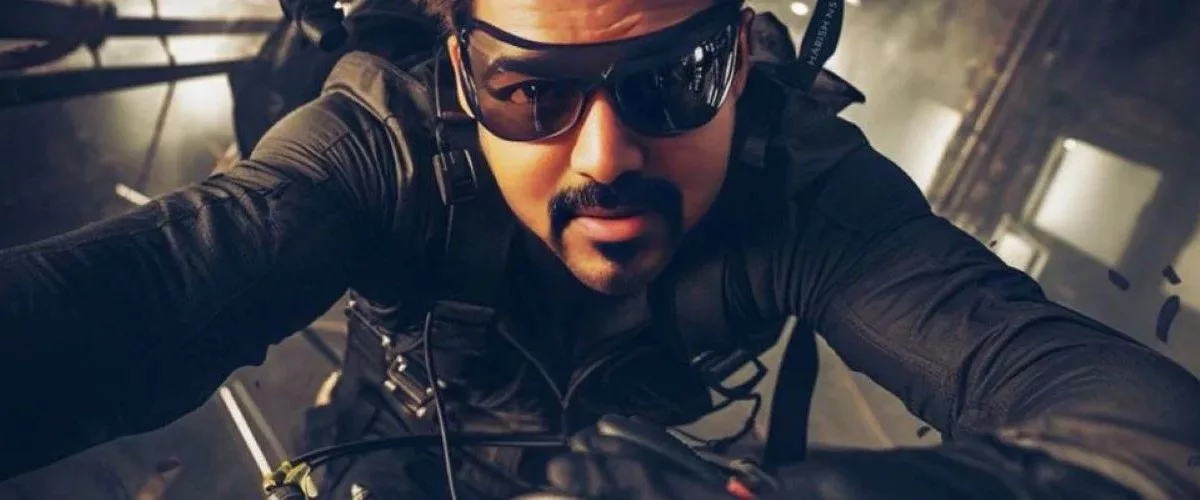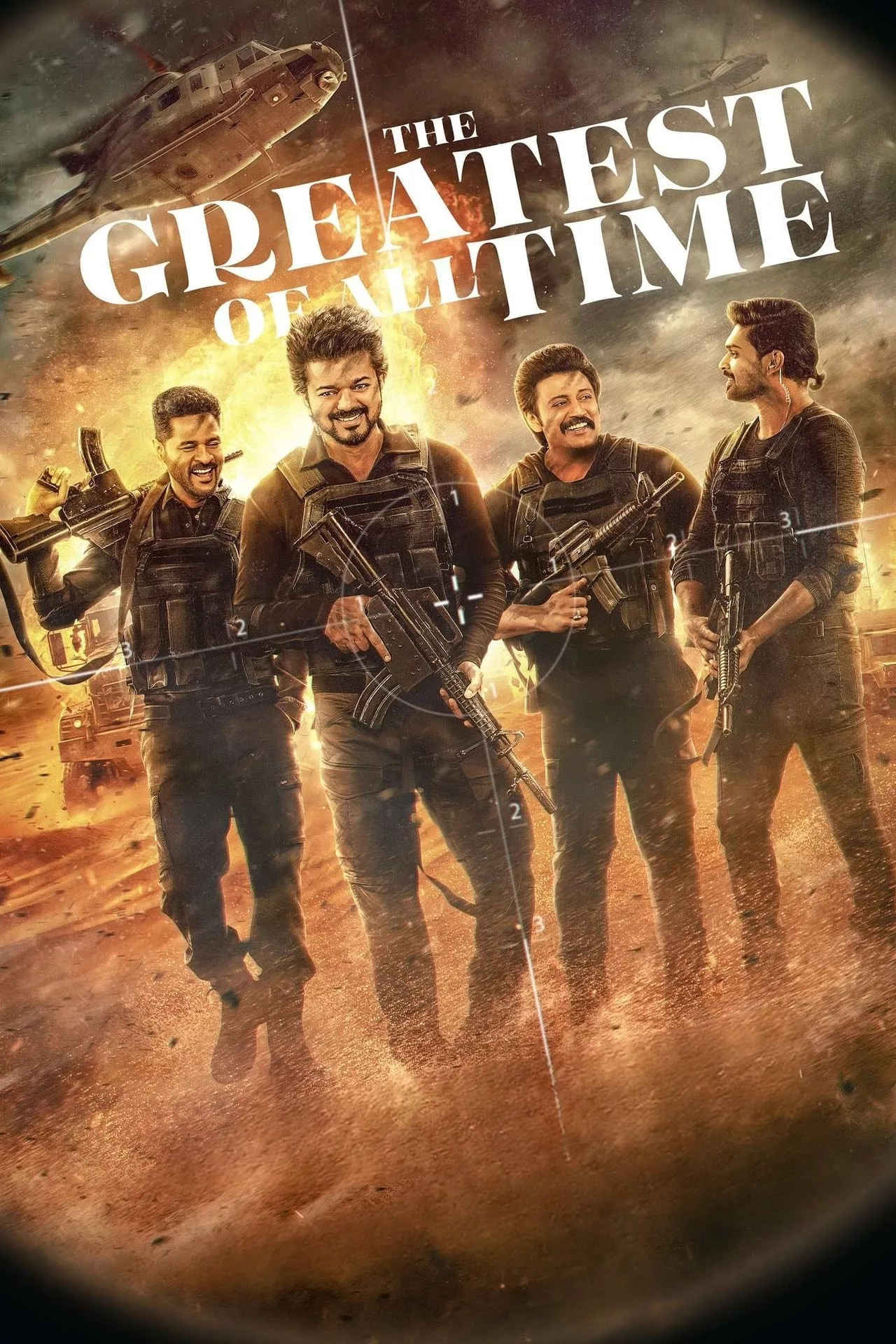There’s a decent-sized twist partway through “The Greatest of All Time,” a new Tamil-language Indian action showcase for forever youthful-looking star Vijay. I must spoil you, dear reader, not only to illustrate how far Vijay will go to substantiate both the movie’s title and his self-appraised versatility but also to explain why this movie is a superior Vijay vehicle. Besides, this plot twist happens within the first hour of the movie’s three-hour runtime and has already been foregrounded in several reviews, so it seems to be fair game. That said, please stop reading now if you wish to remain virginal and unspoiled.
In Vijay’s recent movies, the now 50-year-old leading man takes time to boast about his range, like when he’s hailed as a “multifaced tiger with a multifaceted avatar” in the concluding song from “Beast,” an unhinged and very entertaining 2022 “Die Hard” clone. In “The Greatest of All Time,” Vijay plays two main roles so that he can literally fight a younger version of himself, seemingly de-aged either by artificial intelligence software or bad computer graphics.
Either way, Vijay stars as Gandhi, the widely revered super-spy, and also Jeevan, Vijay’s bashful son. That sort of twist isn’t anything new from mainstream Indian cinema, as Amitabh Bachchan’s fans can tell you (I’ve only seen two of the six or more movies where Big B plays his own father). Innovation isn’t either Vijay or “The Greatest of All Time”’s main strength. Rather, it’s the vigor with which director Venkat Prabhu and his collaborators match their chipmunk-cheeked star and his love of melodramatic overkill.
As both Gandhi Sr. and his adult child, Vijay’s character depends entirely on whatever the scene needs him to be. In early scenes, Papa Gandhi is an Ethan Hunt-type force of nature, like when he confronts terrorists on a moving train in Kenya armed with a mask and complicated voice-altering technology. He’s also a generically truant father and a comically bad liar to his very pregnant and very anxious wife Anu (Sneha), who suspects that Gandhi’s cheating on her.
Gandhi’s two worlds soon collide on an ill-fated trip to Bangkok, which results in the kidnapping and presumed death of his son Jeevan (Akhil, in establishing scenes). Sixteen years pass; grey hairs cover up Gandhi’s dimples. He’s sadder and wiser now, and also not on speaking terms with his wife, not until an unexpected reunion caps off an impromptu melee at the Indian embassy in Moscow. Gandhi recognizes someone across the way. Time slows to a crawl. Is that—could it be—a second Vijay?
Jeevan’s return sets up a staid pre-intermission twist, soon explained by a conventional chain of post-intermission flashbacks, whose sheer bleak-ness soon tips over into a thrilling sort of look-ma-no-brakes heedlessness as terrorism, child trafficking, and corporal punishment are thrown together to create quite the backstory.
Prabhu (“Custody”) and his fellow writers never hesitate to over-deliver on their movie’s pulpier promises (the child-trafficking stuff is a bit much). Their tendency to overdo it comes to a full head once Vijay throws himself into the role of his own son. He’s not yet a great ham, but his mustache-twirling version of Jeevan leads to the movie’s best musical number, which features both the best group choreography and best song (“Matta,” or “Drunk”) as well as Vijay’s best character-driven dancing in this and most of his other recent movies. Better yet, the inevitable Vijay vs. Vijay fight delivers most of what you should want from such a confrontation, including cricket-related peril, a bomb scare, and an airborne motorcycle.
With “The Greatest of All Time,” Vijay celebrates himself in very literal and often amusing ways, including a few callbacks to his own earlier movies, like “Thirumalai” and “Ghilli,” the last of which was re-released earlier this year in India, where it broke box office records. And in case you miss those references, some well-annotated subtitles will help orient you. Vijay’s been riding a wave of success throughout the pandemic, and “The Greatest of All Time” suggests that he doesn’t take that for granted. Here he delivers the best of his recent movies’ dance numbers as well as the most polished fight and action scenes, as well as more crowd-pleasing tangents and dramatic build-up than even in “Master,” his best recent movie. “The Greatest of All Time” still makes a lusty grab for that distinction simply by going for broke harder than most.
When it comes to broad comedies and unabashed melodramas, I’m usually not satisfied unless the moviemakers commit to exhausting whatever genre movie clichés or tropes that they’re futzing about with. “The Greatest of All Time” comes close enough to that ideal and on a fairly consistent basis.




















